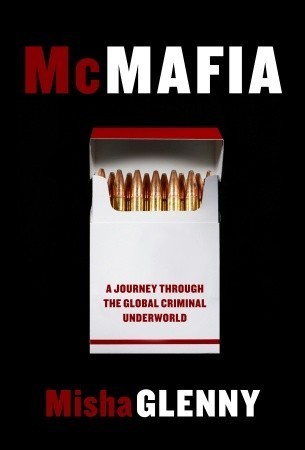What do you think?
Rate this book


398 pages, Hardcover
First published April 8, 2008
 http://www.bbc.co.uk/programmes/b09l64j4
http://www.bbc.co.uk/programmes/b09l64j4 1/8: After a tragic event, Russian exile Alex Godman is drawn into the murky world of global crime as he tries to protect his family from their dark past.
1/8: After a tragic event, Russian exile Alex Godman is drawn into the murky world of global crime as he tries to protect his family from their dark past. 2/8: Semiyon convinces Alex into a venture designed to harm Vadim's business in Prague. Meanwhile, a young girl is taken on a very different journey.
2/8: Semiyon convinces Alex into a venture designed to harm Vadim's business in Prague. Meanwhile, a young girl is taken on a very different journey. 3/8: A mysterious figure, who is not all he seems, reaches out to Alex. While Dmitri deals with grief, Oksana learns of a secret that could rock the family.
3/8: A mysterious figure, who is not all he seems, reaches out to Alex. While Dmitri deals with grief, Oksana learns of a secret that could rock the family. Alex unlocks a way to attack Benny Chopra and Vadim in Mumbai. He and Rebecca announce their engagement, but she starts to think he is hiding something.
Alex unlocks a way to attack Benny Chopra and Vadim in Mumbai. He and Rebecca announce their engagement, but she starts to think he is hiding something. 5/8: Semiyon awakes to an awful accusation. Alex is convinced he's innocent and sets out to try to expose his accusers. Meanwhile, Katya unravels a shocking secret.
5/8: Semiyon awakes to an awful accusation. Alex is convinced he's innocent and sets out to try to expose his accusers. Meanwhile, Katya unravels a shocking secret.

